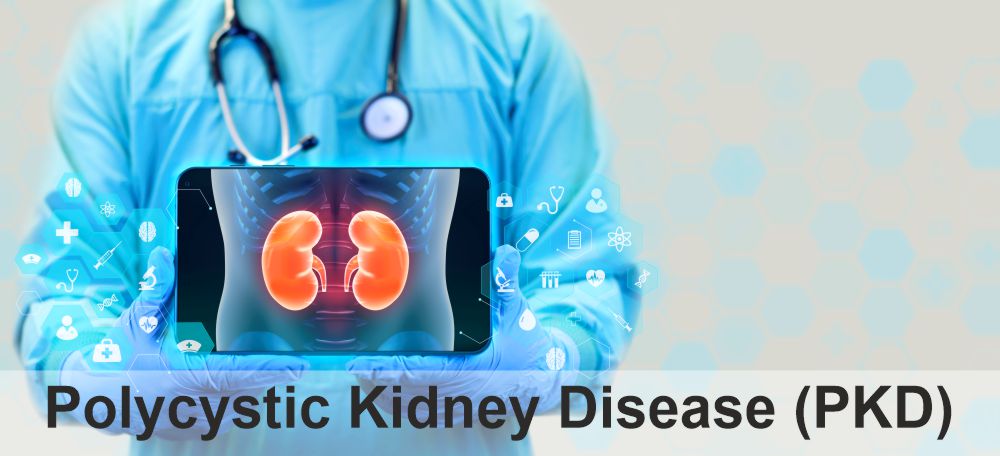Polycystic Kidney Disease (PKD) is a genetic disorder that causes the growth of multiple fluid-filled cysts in the kidneys, leading to enlargement, reduced kidney function, and potential kidney failure. PKD is one of the most common inherited kidney diseases and can affect both adults and children. Dr. Suresh Chandra, a renowned Physician and Nephrologist with 45+ years of experience, specializes in the early diagnosis, prevention, and management of PKD to help patients maintain optimal kidney health and delay disease progression.
Understanding Polycystic Kidney Disease (PKD)
PKD is a progressive disease that causes cysts to grow over time, affecting kidney function. In severe cases, these cysts can lead to kidney failure, requiring dialysis or a kidney transplant. PKD can also affect other organs, leading to complications such as high blood pressure, liver cysts, and cardiovascular issues.
There are two primary types of PKD:
1. Autosomal Dominant PKD (ADPKD) – Most Common
• Symptoms appear in adulthood (usually between 30-50 years).
• Affects both kidneys and may lead to kidney failure.
• Often inherited from one affected parent.
2. Autosomal Recessive PKD (ARPKD) – Rare but Severe
• Symptoms appear in infancy or childhood.
• Can cause severe kidney and liver problems early in life.
• Requires early medical intervention for survival.
Causes & Risk Factors
✔ Genetic Mutation – Inherited from one or both parents.
✔ Family History – Higher risk if a parent or close relative has PKD.
✔ High Blood Pressure & Diabetes – Can worsen kidney damage.
✔ Lifestyle Factors – Smoking, poor diet, and lack of physical activity may accelerate disease progression.
Early screening is essential if PKD runs in the family.
Symptoms of Polycystic Kidney Disease
PKD symptoms vary based on severity and disease stage. Common signs include:
✅ High Blood Pressure (Hypertension) – A leading cause of kidney damage.
✅ Pain or Heaviness in the Back & Sides – Due to enlarged kidneys.
✅ Blood in Urine (Hematuria) – A sign of cyst rupture.
✅ Frequent Urinary Tract Infections (UTIs) – Due to cyst-related infections.
✅ Kidney Stones – Common in PKD patients.
✅ Swelling in the Abdomen – Due to enlarged kidneys.
✅ Headaches or Dizziness – Linked to high blood pressure.
Dr. Chandra emphasizes early detection through advanced diagnostic methods, including:
• Ultrasound & CT Scan: Detect cysts in the kidneys.
• MRI Scan: Provides detailed imaging for disease progression.
• Genetic Testing: Identifies inherited PKD mutations.
• Blood & Urine Tests: Monitor kidney function and protein levels.


